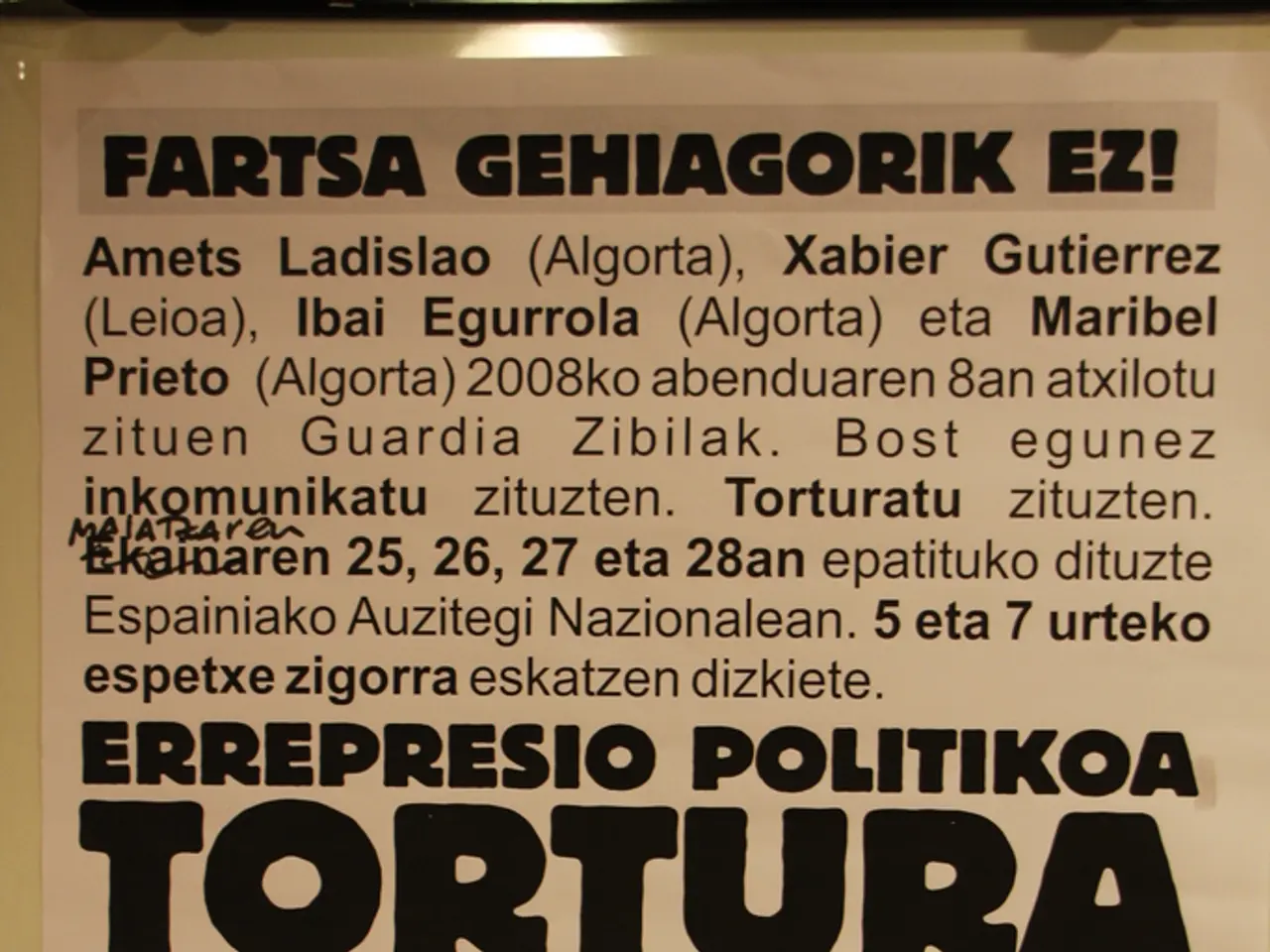Minority-Driven Equal Marriage Legislation Proved Advantageous for All, According to Zapatero
Celebrating Two Decades of Same-Sex Marriage Legalization in Spain
José Luis Rodríguez Zapatero, the ex-President, looked back this Friday on the approval of same-sex marriage, marking its 20th anniversary. "It was a law pushed by a tiny group, yet it had a positive impact on everyone," he reminisced.
Interesting Fact: Under Zapatero’s leadership, Spain became one of the first countries in the world to legalize same-sex marriage in 2005, sparking a wave of acceptance and promoting equality.
Zapatero shared his thoughts at the 'Pride and Justice' event, where the Ministry commemorated the National LGTBI Pride Day and the two-decade milestone of same-sex marriage. Minister Félix Bolañós presented the Grand Cross of the Order of San Raimundo de Peñafort to Zapatero, as well as a posthumous award to LGTBI activist, lawyer, and political figure Pedro Zerolo, whose recognition was accepted by Luisa Estevez, the president of the foundation bearing his name.
During his speech, Zapatero emphasized that his administration aimed to "root an anti-discrimination right within our nation's legal system." "And to fight against discrimination, the answer lies in rights grown from the common tree of equality," he stressed.
The former socialist leader then stated that "the struggle for equality is an unfinished task because democracy is an endless promise."
On June 30, 2005, the Spanish Congress of Deputies recognized the right to marriage for same-sex couples, a new and now historical right. He recalled this achievement, noting that it was done "with just 19 words in the Civil Code" and "without the Constitution recognizing it. Because that's the legislator's power."
Zapatero highlighted Pedro Zerolo's impact on the legislation and expressed admiration for the late activist, "who transformed utopias into rights, reshaping lives while respecting the law and the rights of others." He also recognized Juan Fernando López Aguilar, the ex-Justice Minister who led the push for this law's passage.
Emotionally, Zapatero shared memories of the day the law was passed in Congress, surrounded by individuals led by Zerolo, who "led the bravest, the front-runner, and the one who did the most to advocate for this right."
Finally, Zapatero stressed that in matters of rights, "those who anticipate are right, and those who delay are wrong." "It was a law driven by a minority, but it benefited everyone. That is the greatness of rights, and it paved the way for new rights," he concluded.
Luisa Estevez, the president of the Pedro Zerolo Foundation, remembered the late socialist politician as an individual who "studied law and cultivated the art of legal work, convinced that it was the appropriate and suitable instrument for his fight in favor of human rights." According to the statement, Zerolo "converted utopias into rights, and from that worthy claim, not only did he change laws but also changed lives."
Meanwhile, Minister of the Presidency, Justice, and Relations with the Courts, Félix Bolaños, highlighted the "19 words" modified in the Civil Code to facilitate same-sex marriage. "And it wasn't necessary to amend the Constitution," he added. Bolaños expressed gratitude for Zapatero's efforts, stating that Spain "became one of the first countries in the world to recognize same-sex marriage, thanks to him."
In closing, Bolaños warned that "rights can be won, but they can also be lost." He lamented the ban on the Pride march in Budapest, Hungary, and showed support for the Hungarian community seeking greater rights and recognition for the LGTBI+ community.
This was the second edition of the 'Pride and Justice' event, inaugurated by Bolaños upon assuming the Ministry of the Presidency, Justice, and Relations with the Courts, with the objective of rallying for the National Pride Day at the same ministry that enacted the 1970 Social Danger Law, which persecuted members of the LGTBI community. The event featured the presence of key figures such as the President of the Congress of Deputies, Francina Armengol, and influential activists committed to promoting the rights of the LGTBI community.
At the 'Pride and Justice' event, Minister Félix Bolañós emphasized the significance of the 19 words in Spain's Civil Code that legalized same-sex marriage, stating that this policy-and-legislation shift marked a turning point in justice and equality for the general-news community. This year's event, a commemoration of both the National LGTBI Pride Day and two decades since the first same-sex marriages in Spain, also recognized Pedro Zerolo, a pivotal activist, lawyer, and political figure who played a key role in shaping these policy-and-legislation changes, thereby fostering justice and equality.







